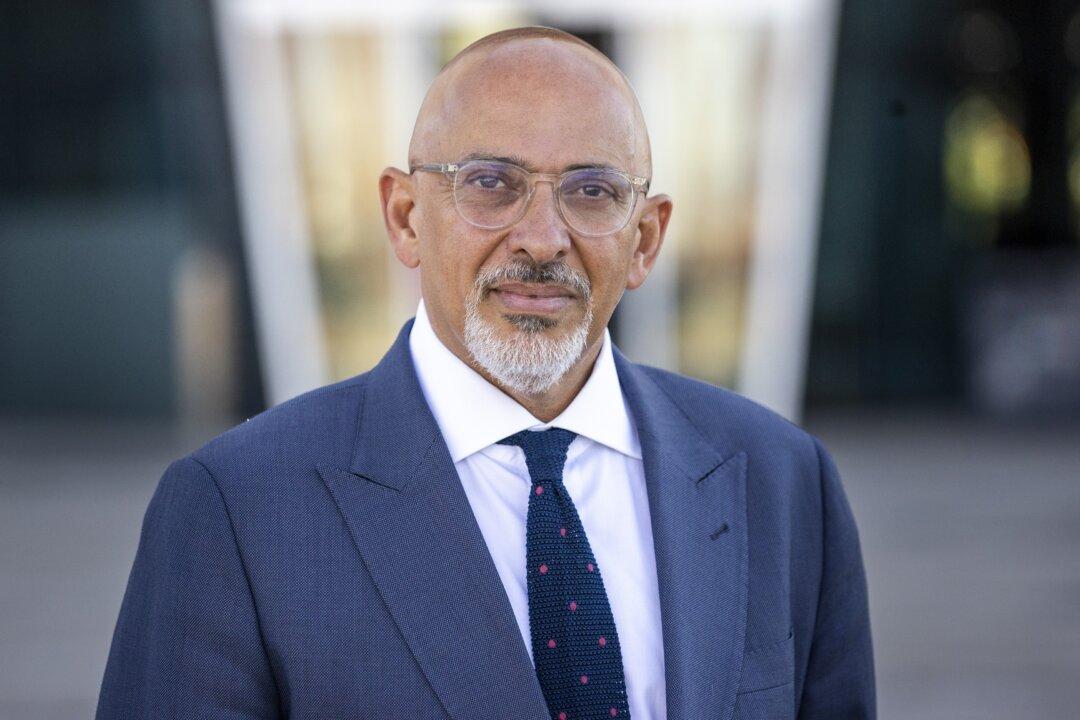To offer targeted help through the welfare system will leave out middle-income households, who are also hit “really hard” by soaring energy bills, the UK’s finance minister said on Friday.
Chancellor of the Exchequer Nadhim Zahawi said he’s working “flat out” to come up with options for the next prime minister, who is due to take office in 10 days.





